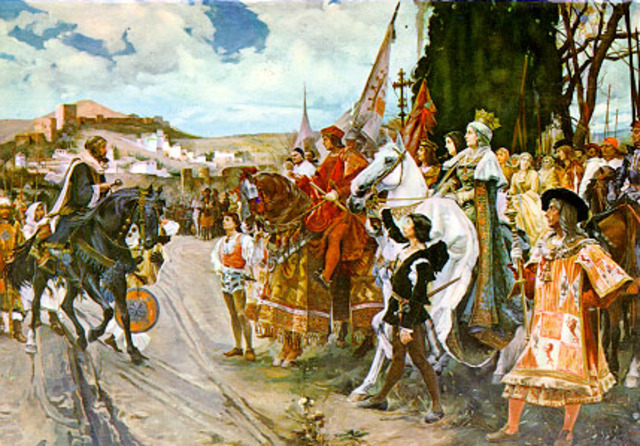Imagine you are a Reformedish Protestant around the time of George W. Bush’s election. You have entered the world of Reformed Protestantism by way of the biblical theology (which leaned Federal) of Peter Leithart and James Jordan, you agree with a number of Doug Wilson’s critiques of modern America, and you became acquainted with the West and the Great Books again through Wilson’s Recovering the Lost Tools of Learning. Say you want a Reformed or Presbyterian church with a narrative that inspires, that connects with the sort of intellectual creativity that Leithart displays, that shows little of the wear and tear that afflicts most denominations in the United States whether sideline or mainline, and that connects with the larger history of the West, from Plato to Erasmus.
Where do you turn?
The OPC is too small and too theologically sectarian. The PCA suffers from similar problems among the TRs (Truly Reformed) and is blithely naive about modernity and urbanity on its progressive side. The ARP and the CRC are too ethnic and suffer from a measure of parochialism within their Scottish and Dutch traditions respectively. The same goes for the RPCNA which is even smaller than the OPC. The CREC might work but in 2000 that communion is only two years old, not the strongest case for a church with roots.
To your credit, you were enough of a Protestant not to find Roman Catholicism as a viable alternative.
What then? Why not turn to Elizabethan Anglicanism, like this?
The early English church, despite all the misconstruals of it by Anglo-Catholics, was Protestant and Reformed. The history of the 19th Anglo-Catholic attempt to deny this is a painful one for those who prize integrity of inquiry. The work of Peter Nockles and the more recent, and excellent, work of Jean-Louis Quantin, have shown how wrongheaded that 19th century orgy of wishful thinking really was. But this was proved back in the 19th c itself by Nathaniel Dimock, regarding sacramental theology, and regarding ecclesiology, by the American Bishop Charles McIlwaine, in his Roman, Oxford, and Anglican Divinity Compared.
The English Church of Elizabeth, James, and Charles is, in some ways, a model of importance for own time. Reformed churches, their common mind constricted by familiarity only with Scots and English Presbyterianism, miss the riches of Reformed thought available in Richard Hooker, or Richard Field, or Lancelot Andrewes (just as they miss the riches available in the thought of German and French Reformed). Anglo-Catholic attempts to prove that the established church was somehow not really Protestant are attempts to deprive modern Protestants of useful heritage.
What is important to notice about this way of being Reformed is that it allowed you to occupy the catholic and moderate middle while also regarding the regulative principle as too Puritan and biblicist (and sectarian) and two-kingdom theology as a betrayal of the godly monarch (which allegedly made the English church tick until those rowdy Presbyterians and Puritans conspired to take down Charles I).
What is also striking about this line of argument about the American church scene at the beginning of the 21st century was that it was precisely the way priests and bishops who were part of the Anglican establishment saw Christianity in England:
The great innovation of Elizabeth’s reign was what we might term the internalization of anti-sectarian rhetoric, as anti-puritanism. In Edward’s reign that language had been used to associate the English church with the foreign reformed churches in the common defence of an emergent reformed orthodoxy. Now it was introjected, to precisely opposite effect, into the conduct of intra-Protestant debates between defenders of the ecclesiastical status quo and proponents of various styles and modes of further reformation. The central figure here was John Whitgift who, in an extended exchange with the leading presbyterian ideologue of the day, Thomas Cartwright, deployed the Edwardian version of the two extremes used to define the via media of the English church, popery and Anabaptism, to exclude, as he hoped, the likes of Cartwright and his ilk, from the charmed circle of English Protestant respectability. True to the spirit of his Edwardian forebears, Whitgift sought to assimilate Cartwright and his associates both to popery and to Anabaptism, using what he took to be their ultra-scripturalism and populism to associate them with the latter and what he took to be their clericalist opposition to the Royal Supremacy to associate them with the former.
Ostensibly a form of religious polemic, Whitgift’s anti-puritanism was also inherently political. It dealt with issues of governance and jurisdiction and stressed heavily the extent of direct royal authority over ecclesiastical affairs. In so doing it encoded within itself a set of (intensely monarchical) political values, defined against what he took to be the ‘popularity’ inscribed within presbyterian theory and puritan political practice. By popularity Whitgift mean a commitment to theories of government in which the role of the people was expanded. But he also used the term to refer to the political methods used by the supporters of the discipline to put their case to a variety of more or less popular publics through the pulpit and the press, and through the the circulation of manuscripts and of rumours and a variety of petitioning campaigns, some of them aimed at the parliament rather than at the prince. (Peter Lake, “Post-Reformation Politics, or On Not Looking for the Long-Term Causes of the English Civil War,” 28)
When Machen, Witherspoon, and Knox won’t do, turn to Whitgift and Hooker? In the United States, a country that made its name by rejecting Royal Supremacy?
It is an intellectually energetic way to find an alternative to American politics and the Reformed and Presbyterian churches that have persisted in the United States. But it is as arbitrary as thinking that the debates surrounding foreign missions and church government of Machen’s time are the terms by which Presbyterians in Australia ought to operate.





